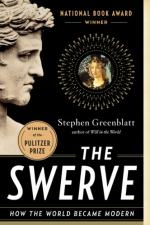|
This section contains 1,290 words (approx. 4 pages at 400 words per page) |

|
Summary
Silencing Bruno was achieved but there was no containing the content of Lucretius’s On the Nature of Things which was gaining interest in Europe. The words of the visionary poet began to impact the works of Renaissance artists and writers. The “thought police” rarely investigated artists for heresy; it was the philosophers and scientists that they focused upon. But just as Lucretius had thought of his ideology as art, so too did the writers of the Renaissance. In Shakespeare’s Romeo and Juliet stage play, Mercutio makes a reference to atoms. Shakespeare would have read Lucretius in a book that was apparently a favorite of his – Essays by Montaigne.
Montaigne was contemptuous of forced morality through fear of retribution in the afterlife. He believed in the Epicurean tenet that the highest form of human existence lay in pleasure and in the seeking of...
(read more from the Chapter 11 Summary)
|
This section contains 1,290 words (approx. 4 pages at 400 words per page) |

|




